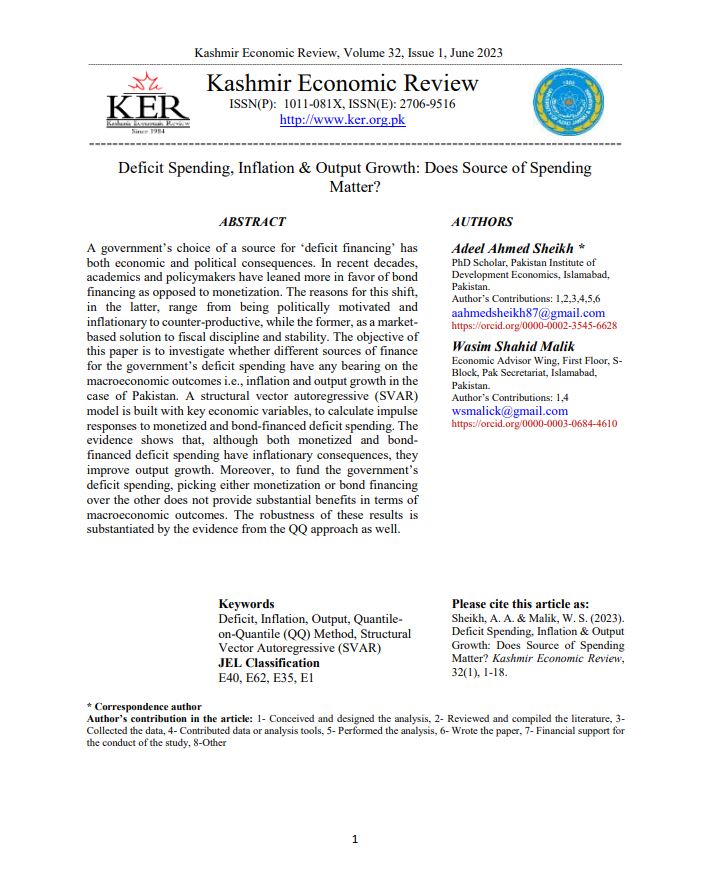Deficit Spending, Inflation & Output Growth: Does Source of Spending Matter?
Main Article Content
Abstract
A government’s choice of a source for ‘deficit financing’ has both economic and political consequences. In recent decades, academics and policymakers have leaned more in favor of bond financing as opposed to monetization. The reasons for this shift, in the latter, range from being politically motivated and inflationary to counter-productive, while the former, as a market-based solution to fiscal discipline and stability. The objective of this paper is to investigate whether different sources of finance for the government’s deficit spending have any bearing on the macroeconomic outcomes i.e., inflation and output growth in the case of Pakistan. A structural vector autoregressive (SVAR) model is built with key economic variables, to calculate impulse responses to monetized and bond-financed deficit spending. The evidence shows that, although both monetized and bond-financed deficit spending have inflationary consequences, they improve output growth. Moreover, to fund the government’s deficit spending, picking either monetization or bond financing over the other does not provide substantial benefits in terms of macroeconomic outcomes. The robustness of these results is substantiated by the evidence from the QQ approach as well.
Article Details

This work is licensed under a Creative Commons Attribution-ShareAlike 4.0 International License.

